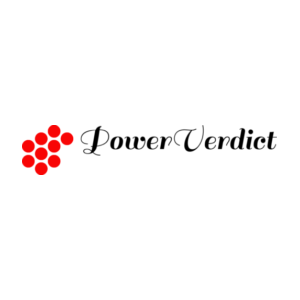A corporate compliance team has to handle several things. They need to develop and implement numerous compliance procedures in line with legal requirements. The reason for this exercise is simple, it is to diminish compliance issues at the enterprise level. However, with the increasing need for compliance requirements, the corporate team comprising the compliance department has to join efforts with several regulatory teams and supervise compliance at the departmental level.
Every compliance organization has to develop a specific strategy to find more about the potential risks. Besides understanding the risks, they also need to strategize a viable action. One has to focus on three aspects, such as processes, programs, and technologies, to avoid compliance risks. Additionally, one needs strong policies and processes to reduce these specific risks. A robust corporate compliance program has the power to help organizations maintain compliance and internal policies. Train employees on the policies to help build an ethical work environment. Find out about the five principles that you need to focus on to build a solid ethics and compliance program.
Managing ethics in a compliance framework in a proactive way
The way an organization demonstrates proactiveness in handling a compliance issue builds brand value and profit. In other words, a business has to be proactive to find thrive and find success. It helps with the need for compliance management. And thus makes it easily accessible to all the related departments.
Proactivity means the corporate compliance team has to collaborate with other departments and help manage the compliance controls, processes, timelines, and templates. This gives the compliance team complete visibility to reduce violations.
Communicate and adopt ethics
Ethics starts from within the confines of your home. The very basis of effective ethics and corporate compliance program makes for certain ethical codes and is apt in processing procedures and policies. These policies underline the culture and behavior of everyone working within the confines of the organization. There are several subsidiaries spread out across different places. Policy creation considers factors like the subsidiary industry and location, which fills the gaps in a compliance policy. Automated tools also augment value as it simplifies policy management process.
Train Employees about compliance policies
Organizations cannot fully comply with the norms that employees do not follow the organizational procedures and policies. Incorporating in employee training is a super smart move. Employees have to cater to the organization’s culture and all the ethical lines. Technology has a key role to play here. The learning or training management system is important. And it helps to conduct and channelize the numerous training programs.
Incorporate Hotlines as a specialized Compliance Program
Many organizations find that incorporating hotline numbers for employees can help in several aspects. Besides solving employee grievances, it also helps in keeping a check on numerous ethical challenges. This includes fraud, bribery, ethical violations, discrimination, and other issues linked to the workplace. The integration of a hotline as part of the compliance program will help you track every issue until closure.
However, a risk-based approach is greatly effective in handling compliance issues.
When it comes to compliance, one has to oversee the issue with a risk-taking approach. Besides that, ethics management includes numerous challenges that an organization battles. And one has to focus on several issues related to risk to prioritize them better. Measurement of compliance risks is done basing on several things. Besides the location and business unit, it also takes into account the process.
Organizations cannot suddenly comply with rules and regulations. Compliance is a continuous process and needs the businesses to keep setting fresh new goals. To do the same, you can leverage technology to help attain goals. It will help optimize the results and help attain the organization’s objectives. The process helps incorporate compliance and be a major part of the business.
Conclusion
Ethics and compliance are some of the biggest risk concerns for businesses. It is especially true of organizations in a global marketplace as such risks are very difficult to identify and reduce. For instance, if you are considering that there are many business units, subsidiaries, and third parties involved, a trained professional can come to your assistance.
As the global market place has transformed, so has the role of (CCO) Chief Compliance Officer. And with that, the corporate compliance teams and their roles are evolving as well. With this information in place and the right team by your side, you can guide your business on the right path. However, you should also consider talking to a lawyer and get legal assistance. Besides that, they could also help you hire the right CCO for your business.




